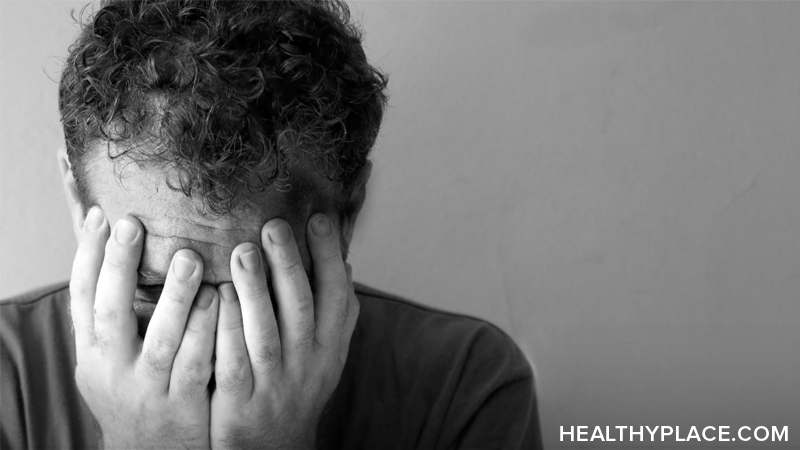Issues Surrounding Men Who Have Been Sexually Assaulted

One worry among men who have been sexually assaulted as children is will they become child molesters themselves. This article addresses that and the importance of therapy for men who have been sexually assaulted.
What impact does gender socialization have upon men who have been sexually assaulted?
Because of their experience of sexual assault, some men attempt to prove their masculinity by becoming hyper-masculine. For example, some men deal with their experience of sexual assault by having multiple female sexual partners or engaging in dangerous "macho" behaviors to prove their masculinity. Parents of boys who have been sexually abused may inadvertently encourage this process.
Men who acknowledge their assault may have to struggle with feeling ignored and invalidated by others who do not recognize that men can also be victimized.
Because of ignorance and myths about sexual abuse, men sometimes fear that the sexual assault by another man will cause them to become gay. This belief is false. Sexual assault does not cause someone to have a particular sexual orientation.
Because of these various gender-related issues, men are more likely than women to feel ashamed of the assault, to not talk about it, and to not seek help from professionals.
Are men who were sexually assaulted as children more likely to become child molesters?
Another myth that male victims of sexual assault face is the assumption that they will become abusers themselves. For instance, they may have heard that survivors of sexual abuse tend to repeat the cycle of abuse by abusing children themselves. Some research has shown that men who were sexually abused by men during their childhood have a greater number of sexual thoughts and fantasies about sexual contact with male children and adolescents. However, it is important to know that most male victims of child sexual abuse do not become sex offenders.
Furthermore, many male perpetrators do not have a history of child sexual abuse. Rather, sexual offenders more often grew up in families where they suffered from several other forms of abuse, such as physical and emotional abuse. Men who assault others also have difficulty with empathy, and thus put their own needs above the needs of their victims.
Is there help for men who have been sexually assaulted?
It is important for men who have been sexually assaulted to understand the connection between sexual assault and hyper-masculine, aggressive, and self-destructive behavior. Through therapy, men often learn to resist myths about what a "real man" is and adopt a more realistic model for safe and rewarding living.
It is important for men who have been sexually assaulted and who are confused about their sexual orientation to confront misleading societal ideas about sexual assault and homosexuality.
Men who have been assaulted often feel stigmatized, which can be the most damaging aspect of the assault. It is important for men to discuss the assault with a caring and unbiased support person, whether that person is a friend, clergyman, or clinician. However, it is vital that this person be knowledgeable about sexual assault and men.
A local rape crisis center may be able to refer men to mental-health practitioners who are well-informed about the needs of male sexual assault victims.
Summary
There is a bias in our culture against viewing the sexual assault of boys and men as prevalent and abusive. Because of this bias, there is a belief that boys and men do not experience abuse and do not suffer from the same negative impact that girls and women do. However, research shows that at least 10% of boys and men are sexually assaulted and that boys and men can suffer profoundly from the experience. Because so few people have information about male sexual assault, men often suffer from a sense of being different, which can make it more difficult for men to seek help. If you are a man who has been assaulted and you suffer from any of these difficulties, please seek help from a mental health professional who has expertise working with men who have been sexually assaulted.
Recommended Books
Victims No Longer: Men Recovering from Incest and Other Sexual Child Abuse by Mike Lew, Foreword by Ellen Bass. (1990). HarperCollins
Wounded Boys, Heroic Men: A Man's Guide to Recovering from Child Abuse by Danial Jay Sonkin and Lenore E. A. Walker. (1998). Adams Media Corporations
Sources:
- Hepburn, J. M. (1994). The implications of contemporary feminist theories of development for the treatment of male victims of sexual abuse. Journal of Child Sexual Abuse, 3, 1-18.
- Lisak, D. (1994). The psychological impact of sexual abuse: Content analysis of interviews with male survivors. Journal of Traumatic Stress, 7, 525-548.
- Porter, E. (1986). Treating the young male victim of sexual assault. Syracuse, NY: Safer Society Press.
APA Reference
Staff, H.
(2021, December 17). Issues Surrounding Men Who Have Been Sexually Assaulted, HealthyPlace. Retrieved
on 2026, March 3 from https://www.healthyplace.com/abuse/articles/men-sexually-assaulted-impact



